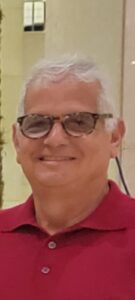Renal Repair and Recovery: Dr. Moustafa Moustafa’s Advances in Kidney Regeneration
Renal Repair and Recovery: Dr. Moustafa Moustafa’s Advances in Kidney Regeneration
Blog Article

Help infection has been regarded a modern and irreversible situation, with individuals experiencing limited alternatives for recovery, particularly in sophisticated stages. However, recent breakthroughs in renal regeneration by Dr. Moustafa Moustafa are supplying a new hope for millions experiencing chronic kidney illness (CKD) and other renal disorders. Dr. Moustafa's pioneering function in kidney therapeutic is transforming the way in which we approach help care, focusing on not only managing signs but regenerating ruined tissues and rebuilding help function.
The Desperation of Help Infection Answers
Serious help condition is a growing international wellness problem, affecting around a huge number of the world's population. For many years, treatment has mainly been restricted to preventing the apparent symptoms of CKD, delaying its advancement, or, in significant cases, handling end-stage renal infection with dialysis or kidney transplantation. These two latter options come with significant difficulties, including limited availability of donor kidneys and any risk of strain of lifelong dialysis treatments.
Dr. Moustafa Moustafa has brought on these difficulties with a brand new perspective. His study in renal regeneration represents a shift in focus from symptom management to curative strategies aimed at therapeutic and also preventing help damage.
Harnessing the Energy of Regeneration
Dr. Moustafa's work centers on the normal regenerative capabilities of help tissues. Although the kidney has limited regenerative volume in comparison to other organs like the liver, Dr. Moustafa's research is unlocking new potential by exploring cell-based remedies, growth factors, and revolutionary scientific interventions that promote the regeneration of damaged nephrons—the functional products of the kidney.
One of is own important breakthroughs requires base mobile therapy. By utilizing base cells to correct and change damaged renal tissues, Dr. Moustafa is driving the boundaries of kidney regeneration. This method might let patients to regain missing kidney purpose without the need for intrusive procedures or ongoing dependence on dialysis.
Early Recognition and Regenerative Interventions
Early treatment plays a crucial position in the success of regenerative therapies. Dr. Moustafa's study can be focused on establishing better instruments for detecting kidney injury at their earliest stages. His breakthroughs in biomarkers and diagnostic systems allow physicians to recognize CKD before it reaches a vital level. This opens the entranceway for regular interventions, where regenerative remedies can have the greatest impact.
By employing a combination of early recognition and personalized regenerative therapies, Dr. Moustafa is paving the way for another where kidney infection no further has to be always a life-altering diagnosis. Patients who'd have once faced another of dialysis or transplants may possibly now have the ability to retrieve their help purpose and cause standard, healthy lives.
A Perspective for the Future of Help Attention
Dr. Moustafa Moustafa ORANGEBURG, S.C.'s work in renal regeneration is just a beacon of a cure for people and healthcare vendors alike. His study gets the potential to revolutionize help attention by moving the focus from controlling damage to actively therapeutic ruined tissues. As his findings continue steadily to evolve, the continuing future of help condition therapy may be one wherever dialysis and transplants become uncommon, and kidney wellness may be restored through revolutionary regenerative medicine.
To sum up, Dr. Moustafa's breakthroughs in renal regeneration aren't just providing new avenues for therapeutic but in addition providing desire to thousands about the world who have problems with kidney-related issues.
Report this page